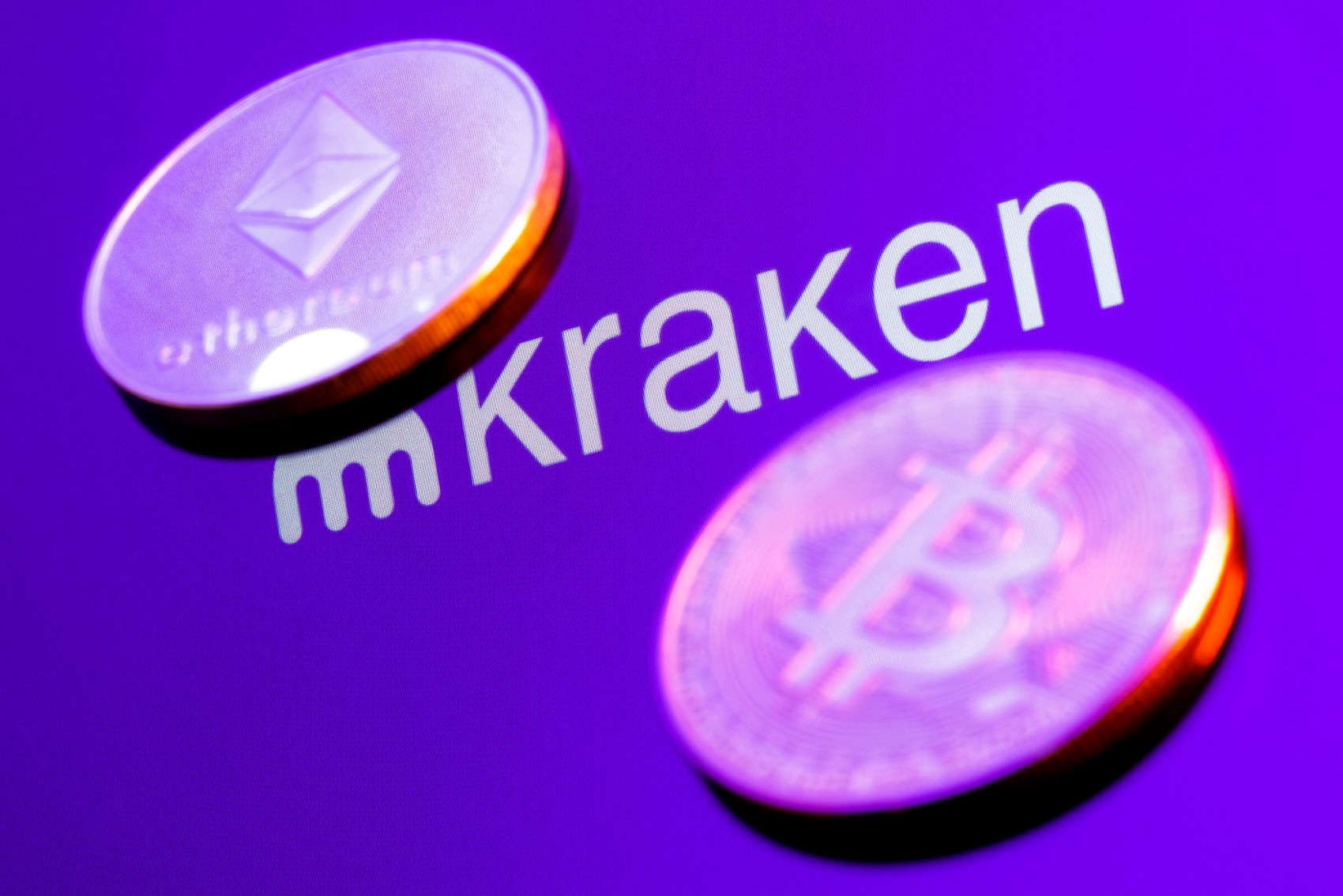Bitpanda, a Vienna-based trading platform renowned for its role in democratizing access to crypto, stocks, and precious metals, is at a pivotal moment. Founded in 2014, Bitpanda has grown exponentially, securing a valuation of around $4.1 billion. That’s largely thanks to backing from high-profile investors like Peter Thiel’s Valar Ventures. Now, as it weighs the options of an initial public offering (IPO) on Frankfurt’s stock exchange versus a full or partial acquisition, Bitpanda is setting a potential precedent for other crypto firms eyeing mainstream financial markets. To navigate these strategic paths, Bitpanda has engaged industry heavyweights Citigroup and JPMorgan Chase as advisors.
A Dual-Path Strategy
The current talks, still in the preliminary stages, come as the digital asset market sees increased regulatory support, notably with the U.S. approval of spot Bitcoin ETFs – a move that has stirred fresh interest and investment in crypto platforms. Bitpanda’s decision could materialize in 2025. That timeline would reflect the company’s ongoing assessment of market conditions and regulatory climates across Europe. The dual-path strategy – considering both an IPO and acquisition – presents divergent advantages. An IPO would establish Bitpanda’s independent position within the public markets, potentially attracting a broader range of investors. It would also amplify its brand across Europe. Conversely, a sale might yield immediate capital, allowing investors and early backers to realize gains while giving Bitpanda access to the infrastructure of a larger financial entity.
Financials and Growth Trajectory
Bitpanda’s financial turnaround has strengthened its appeal. The platform reported over €100 million in revenue during Q1 2024 and achieved a pre-tax profit of €13.6 million in 2023. That is a significant recovery from its €130 million loss the previous year. This strong performance, paired with innovative features like Deutsche Bank IBAN integration for faster transfers in Germany, underscores Bitpanda’s commitment to enhancing its user experience and operational efficiency. This feature has streamlined transaction processes for German users and also made Bitpanda more competitive in Europe’s crypto and stock trading arena, where ease of use is increasingly essential.
The Broader Implications for Crypto and Finance
If Bitpanda opts for an IPO, it would join a small but growing list of crypto firms that have ventured into public markets. This step could further normalize the industry in the eyes of traditional investors, reducing the perceived gap between digital assets and conventional finance. Bitpanda’s comprehensive asset offerings – including crypto, fractional stocks, and metals – position it uniquely as a bridge between crypto enthusiasts and more conventional investors seeking portfolio diversification. Moreover, the public scrutiny associated with being a listed company could enhance transparency within the crypto sector, fostering regulatory goodwill and potentially influencing other crypto firms to consider public listings.
On the other hand, an acquisition could signal a new wave of consolidation within the crypto industry. In a competitive market, crypto companies often face pressure to scale rapidly or partner with more established financial firms. A sale would align with the broader industry trend of integrating crypto-native companies and established financial players. Bitpanda’s current advisory arrangement with Citigroup and JPMorgan underscores the trend. For investors, this could mean more robust, regulated platforms with the backing of traditional financial institutions, though it might also dilute Bitpanda’s independent identity.
>>> Read more: Raiffeisen Integrates Bitpanda for Crypto Trading: European First
Industry Reflections on Bitpanda’s Next Steps
Market analysts and crypto enthusiasts are closely watching Bitpanda’s next move, which reflects a broader transformation within the crypto industry. Bitpanda’s valuation and operational stability make it a compelling case study on how established crypto platforms might navigate either path – toward independence on the public stage or deeper integration with legacy finance through a sale.
As Bitpanda’s leadership, including CEO Eric Demuth, continues to assess these options, its decision will likely influence not just Bitpanda’s future but also the trajectory of crypto’s mainstream adoption in Europe and beyond.
Readers’ frequently asked questions
How would an IPO impact Bitpanda’s business model and services?
An initial public offering (IPO) could bring substantial benefits to the Bitpanda business model. Going public often brings in a fresh influx of capital. That could fuel Bitpanda’s plans for expansion across Europe and possibly into new markets. Publicly listed companies are generally subject to more stringent regulations, which might reassure users about Bitpanda’s transparency and stability. Additionally, with more resources, Bitpanda could innovate further, potentially improving its offerings in cryptocurrencies, fractional stocks, and metals, while developing new products that meet evolving customer demands. This move would also make Bitpanda answerable to shareholders, influencing it to prioritize steady growth and profitability. That aligns more with traditional finance practices while maintaining its digital asset-focused offerings. Overall, a successful IPO could elevate Bitpanda’s reputation and appeal to traditional investors interested in diversified asset platforms.
What are the potential risks associated with Bitpanda’s IPO or sale?
An IPO could bring risks, as Bitpanda would be exposed to the volatility of public markets, especially in the unpredictable crypto sector. If the IPO doesn’t meet expectations, the company might struggle with fluctuating stock prices, impacting its long-term growth strategy. Additionally, a public listing demands transparency and regular disclosure. That could be challenging in the fast-paced and sometimes opaque world of digital assets. On the other hand, a sale might risk Bitpanda’s brand identity and independence if the acquiring company has different priorities or intends to integrate Bitpanda’s services into a broader corporate structure. The sale could also lead to shifts in Bitpanda’s leadership and strategy, possibly affecting user experience or shifting focus away from its current diverse asset options to accommodate the acquiring firm’s goals.
How does Bitpanda compare with other crypto firms that have pursued an IPO?
Bitpanda’s exploration of an IPO would position it alongside a select few crypto companies that have ventured into public markets. For example, Coinbase’s IPO in 2021 marked a milestone as the first major cryptocurrency exchange to go public, paving the way for more firms to follow. However, Coinbase’s experience also revealed some challenges. The company faced significant stock price volatility and the constant scrutiny that comes with being a publicly traded entity. Bitpanda, with its broader asset offerings – including stocks, ETFs, and metals – would bring a slightly different approach to the public markets. That approach may appeal to a wider base of retail investors seeking diversified assets rather than pure crypto exposure. By contrast, a sale could align Bitpanda more closely with other crypto platforms that have opted for partnerships or acquisitions by larger financial institutions, blending traditional finance structures with digital asset services.
What Is In It For You? Action Items You Might Want to Consider
Monitor Bitpanda’s Market Developments Closely
Bitpanda’s choice between an IPO and a sale could significantly impact its market behavior and valuation. Staying updated on these developments can help you gauge how Bitpanda’s decision might influence its asset offerings, user incentives, and trading infrastructure. If an IPO proceeds, expect increased transparency and potentially greater stability, making it more appealing for long-term investment strategies. Conversely, a sale could mean immediate structural changes, possibly aligning Bitpanda more with the acquiring company’s priorities. Set alerts for announcements from Bitpanda and their advisors, Citigroup and JPMorgan. Any strategic decision could lead to sudden shifts in the market.
Evaluate How Bitpanda’s IPO Might Affect European Crypto Access
With Bitpanda’s robust European user base and offerings spanning multiple asset classes, an IPO could make it one of Europe’s leading multi-asset platforms. As a trader, consider how a listed Bitpanda might enhance your portfolio’s diversification options – particularly for those interested in regulated, European-accessible platforms. Should Bitpanda go public, its regulatory alignment and transparency could make it a safer choice within Europe’s crypto trading landscape, appealing to traders seeking lower-risk, regulated options for digital and traditional assets.
Review Broader Market Sentiment on Crypto IPOs and Acquisitions
Bitpanda’s strategic decision occurs during a period of favorable crypto sentiment, partly influenced by regulatory advances like the approval of Bitcoin ETFs in the U.S. Traders can use this timing to assess how Bitpanda’s move might fit within broader industry trends. For instance, IPOs of crypto firms like Coinbase have faced both significant highs and steep declines, illustrating the volatility inherent in public listings. Following market sentiment on crypto IPOs can help you prepare for Bitpanda’s potential volatility post-IPO, or market shifts if an acquisition alters its structure or trading environment.










